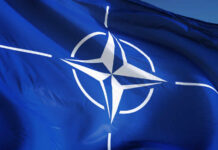
In a decisive step to enhance its strategic military capabilities, France has successfully test-fired the M51.3 long-range ballistic missile, the nation’s defense ministry reported on Sunday. This move is seen as a reinforcement of France’s nuclear deterrent strength in an era where global security dynamics are rapidly shifting.
The missile, which was not equipped with a nuclear warhead for this test, was launched from the Biscarosse site in southwest France and descended into the North Atlantic, ensuring no risk to human safety. The ministry stated that this test serves to “confirm a major improvement of the missile which will contribute to the lasting credibility of France’s oceanic deterrence in coming decades.”
France Test-fires Long-range Ballistic Missile in Bid to Boost Nuclear Deterrence | https://t.co/n7n6sHeH95 https://t.co/UxhiZPPYLs
— Sharkbait MAGA Extreme Republican (@ocean_affair) November 19, 2023
This event gains significance as the world observes Russia’s aggressive posture since the Ukraine conflict, with President Vladimir Putin not shying away from hinting at the use of nuclear capabilities to defend Russian interests.
The upgraded M51.3 is an evolution of the M51, a sea-land strategic missile first launched in 2006 and commissioned in 2010. Developed by ArianeGroup, a collaboration between Airbus and Safran, the missile is expected to join the French arsenal around 2025.
Ballistic missiles like the M51.3 are engineered to traverse an elliptical path, sometimes even exiting the Earth’s atmosphere. This capability contrasts with cruise missiles that maintain a linear, low-altitude trajectory.
France maintains its status as a principal nuclear power, having tested its first nuclear weapon in 1960. As a recognized nuclear weapon state under the Treaty on the Non-Proliferation of Nuclear Weapons, France stands as the only European Union member with its nuclear arsenal independent of NATO’s umbrella. Its current stockpile ranks fourth globally.
The defense ministry emphasized that the test adhered to France’s international commitments, underscoring the nation’s continued transparency and responsibility as a nuclear power.
In historical context, France’s nuclear strategy evolved from a need to establish political and military parity with other nuclear-capable nations. Since the Cold War’s culmination, France has halved its nuclear arsenal, reflecting a commitment to maintaining a sufficient deterrent without excess.
France’s nuclear policy, including a potential ‘final warning’ strike doctrine, reflects a strategic ambiguity to deter aggression. While not integrated into NATO’s military command, France affirms its capability and willingness to employ nuclear forces to defend itself and its allies.
Estimates suggest France holds about 290 nuclear warheads, with the majority deployed via its Navy to ensure a continuous at-sea presence, thereby securing a retaliatory second-strike capacity.
This latest missile test underscores France’s dedication to its strategic autonomy and maintaining a credible deterrent force, a point of pride and a critical element of national defense policy.
































